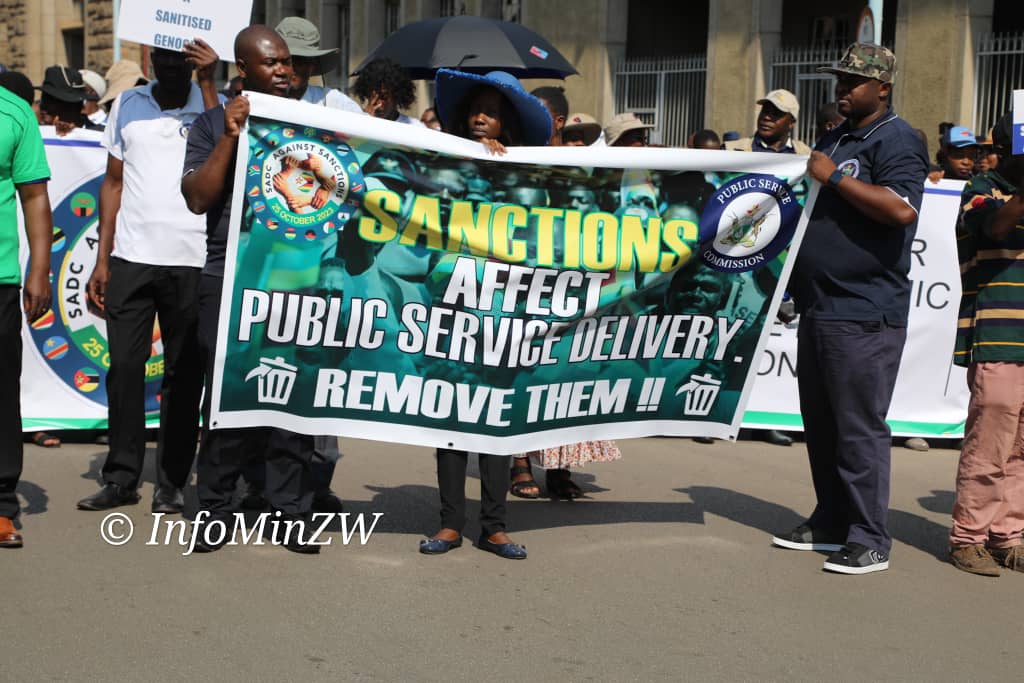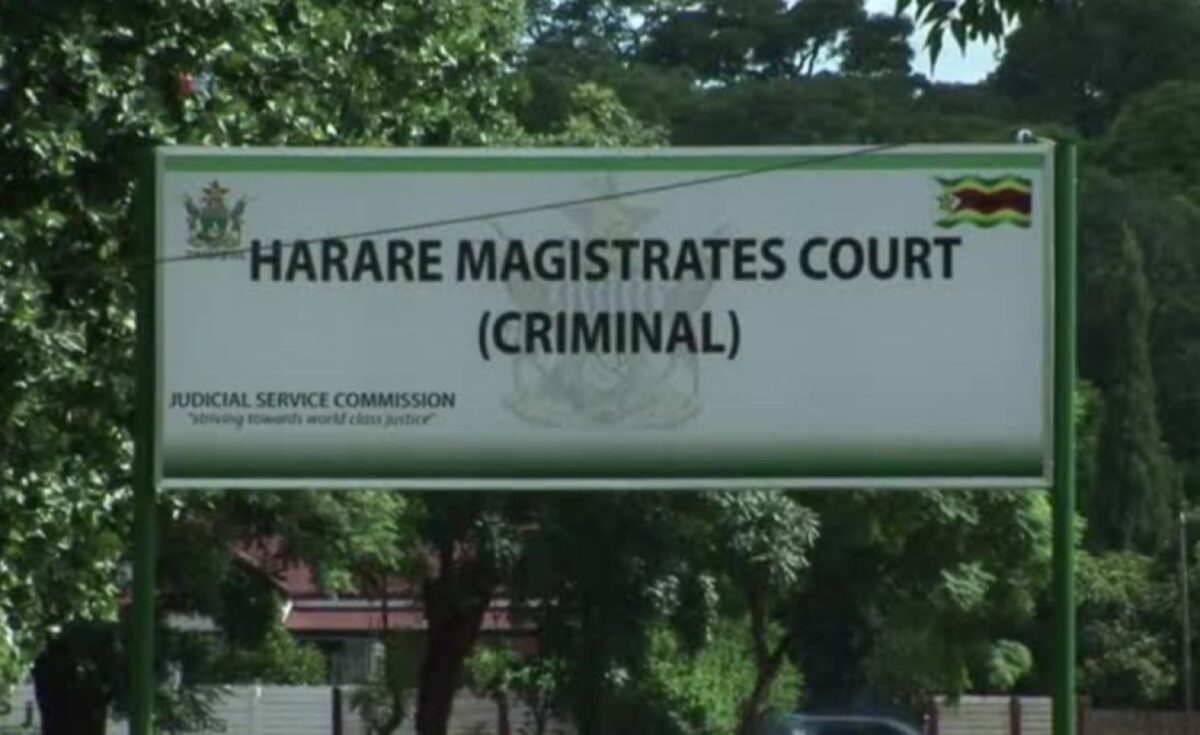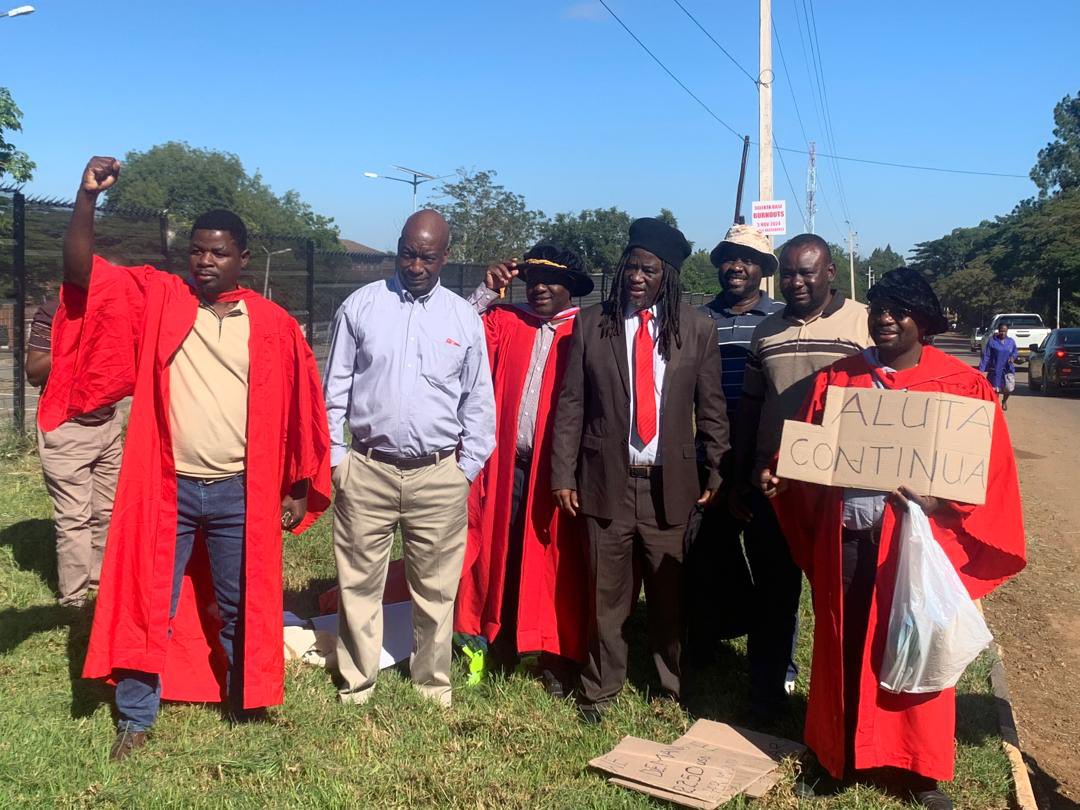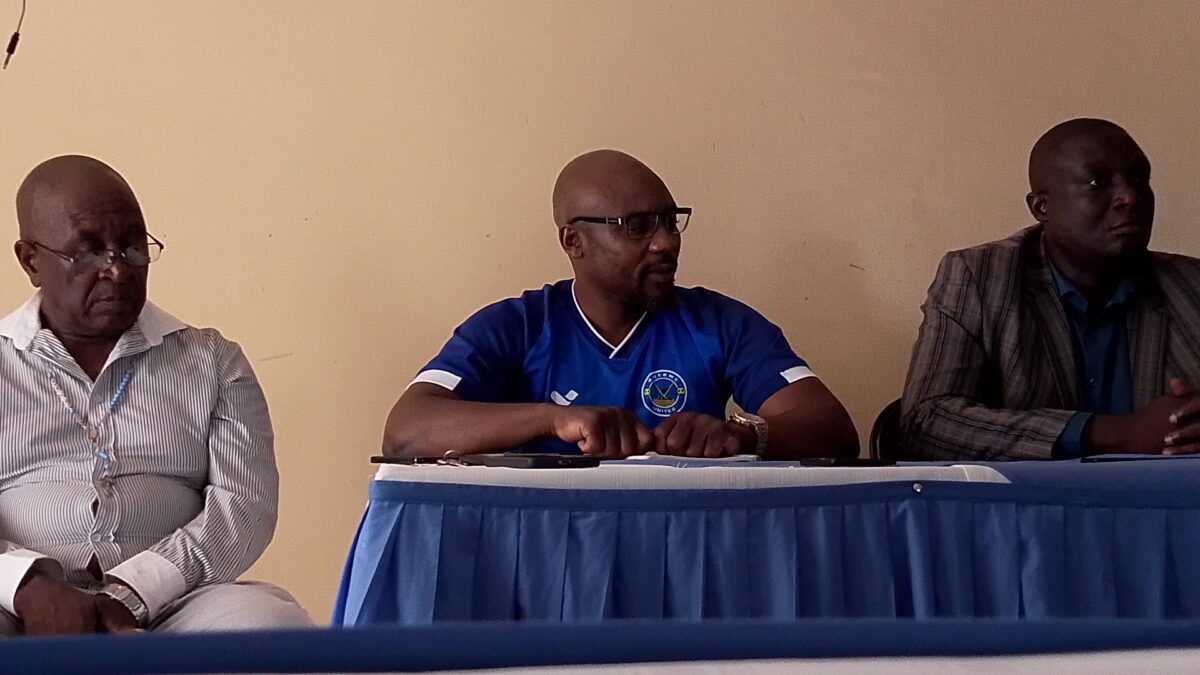HARARE – School children and poorly paid government workers were on Wednesday commandeered to take part as well as boost numbers during the Zanu PF government’s anti-sanctions day campaign.
Every October 25 was in 2021 designated by SADC as the day member countries shall show solidarity with Zimbabwe, whose government blames the measures for the country’s economic ruin.
The sanctions were imposed by America and its European allies soon after the turn of the century in response to rights abuses, poll fraud and high-level corruption under the country’s late former ruler Robert Mugabe.
However, the anti-sanctions day has largely been ignored by both the region and Zimbabweans who feel the country’s economic woes were a result of bad governance and unbridled corruption under Zanu PF.
In a bid to boost numbers and add a semblance of public support for the campaign, government Wednesday ordered civil servants to take part in the march which ended with an address by Vice President Constantino Chiwenga at Africa Unity Square in Harare.
In his speech, Chiwenga repeated government claims the measures have brought economic losses to the once prosperous country.
“Since 2001, we estimate that Zimbabwe has lost or missed over 150 billion United States dollars through frozen assets, trade embargoes, export and investment restrictions, from potential bilateral donor support, development loans, IMF and World Bank balance of payment support and commercial loans,” Chiwenga said.
“This has forced our Gross Domestic Product to contract drastically in the two decades that followed the imposition of sanctions.
“The restrictive measures are also a direct attack on Zimbabwe’s currency which is our sovereign currency of choice, hence our motherland remains subdued by United States dollar.”
Commemorations were also performed in other parts of the country.
Regional leaders have blindly called for the scrapping of sanctions imposed on Zimbabwe but have refused to call out the Zanu PF led authority over its excesses.
Government critics say the country’s leaders were culpable for the imposition of sanctions through bad governance practices.
Zanu PF says the sanctions were brought as a form of punishment to the country for embarking on the land reform programme which saw nearly five thousand white farmers who owned on tracts of the country’s commercially viable land dislodged ostensibly to correct land ownership imbalances brought by colonialism.
Countries that imposed sanctions have asked the Zimbabwe government to end persecution on critics, restore electoral reforms and deal with corruption before the measures could be lifted.
There has not been any spirit shown in that direction by government which continues to demand unconditional removal of the measures.
Government blames the opposition for inviting sanctions on the country and has imposed tough laws that make it criminal for any local to engage foreign forces on anything that could be intended at economically disadvantaging the country.
















